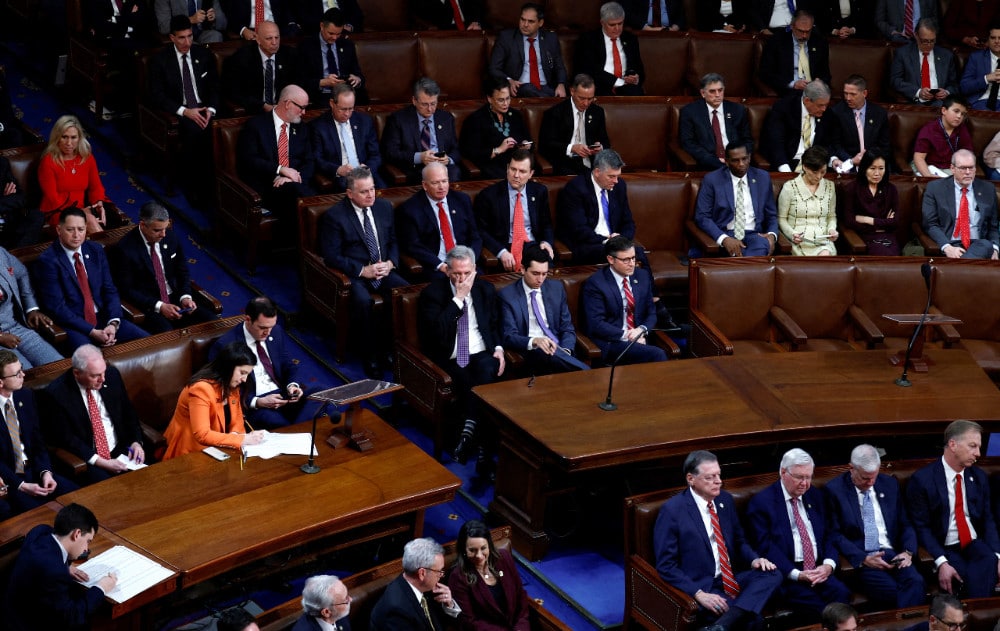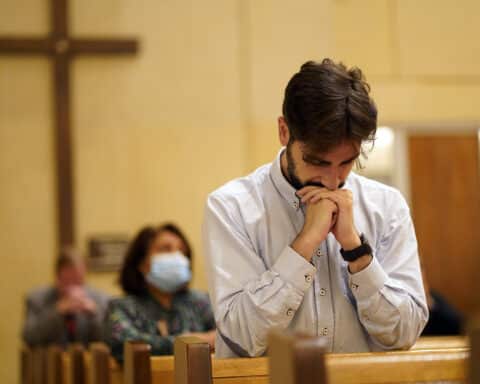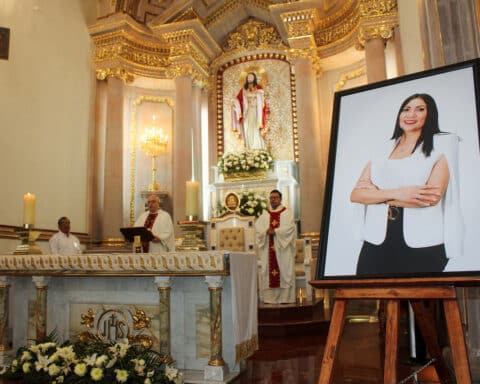The most notorious case of the election of a speaker of the House was undoubtedly the 1856 election of the speaker of the 34th Congress. With the Whig party recently dissolved and the chamber sharply divided over slavery, it took nearly two months and 133 ballots to elect Nathaniel Banks of Massachusetts as speaker.
The current speaker of the House, Rep. Kevin McCarthy, was elected at the beginning of January after 15 ballots. Speaker McCarthy’s election at the opening of the 118th Congress did not inspire confidence. In fact, since Banks’ election, only one speaker race in the post-Civil War era required multiple days and ballots. That was in 1923, when the House settled on Rep. Frederick H. Gillett.
Many will point to the contentious election of McCarthy as a demonstration of dysfunction in the Republican Party. And while the ails of the GOP were placed on full display during McCarthy’s feverish efforts to scrape together a victory, something greater came to light.
There has been a change in our national discourse. The decay and rot that have infected our public conversation can no longer be denied. The bumbling election of a speaker requiring 15 ballots, however, is only a sign of the more grievous blight. Former levels of mediocrity have been replaced with new heights of foolishness. The true sorrow that troubles our politics is that we have lost a shared appreciation of the common good.
It’s difficult to reference a former time without that argument being dismissed as mere nostalgia. And yet, the reality is that, in the past, even when politicians were looking out for their personal constituencies, to the extent that they were striving for the common good, there was respect and dignity. No matter what they were arguing about on the floor of Congress, debates were conducted in a reasonable way. Business moved along. Rhetoric was high enough, but the major functions of governance were attended to.
Tip O’Neill, the Democratic speaker of the House from 1977-87, once said: “I’ve known personally every president since Jack Kennedy, and I can honestly say that Ronald Reagan was the worst. But, he’d have made a hell of a king.” Consider that despite all the things O’Neill said about Reagan, the two were very close. They shared a sense that once the vote was over, it was done. O’Neill was the consummate servant of his party’s machine, and yet he could set all that aside anyway. He sought a real working relationship with Reagan, no matter how little they agreed.
Friendship and kinship are at the heart of the common good. They raise individuals above partisan differences because both friendship and kinship are in the service of a common cause. A true friend recognizes the good of the other as his own good. The famous friendship of the late justices Antonin Scalia and Ruth Bader Ginsburg is another inspiring example. They had things to love and share beyond their politics (opera, travel, etc.), and those shared pursuits of life led them to something more together.
We can build such friendships by investing in our local politics, because, by its very nature, local politics tends to mitigate the divisions we see at the national level. In local politics, people have to live with one another, dine at the same restaurants, attend the same Little League games and pray at the same churches.
But this is also, considering the acrimony surrounding the election of McCarthy, a good moment for all of us to examine our relationships with those across the aisle. How do we talk to friends and family who don’t hold our views? Are we more interested in scoring cheap points, winning quick arguments? Or do we continue to critique and mold and polish our own views, all while genuinely trying to see things from the other side? What are our relationships like with those with whom we disagree? Ultimately, we can’t have enemies and pretend to be serving the common good.
A shared pursuit of the common good does not mean that our views will suddenly be whitewashed, or that we’ll ignore the things we disagree about. In fact, in order for real discussions to occur, often those points of disagreement have to be named and acknowledged. And we have to be ready to shed the less essential in the name of compromise.
We see the failure to advance the common good in countless areas. Americans agree that immigration reform is needed, but we can’t have a discussion on what that looks like. We know that we need gun legislation, but we can’t figure out what that means. We can’t reform Medicare, Social Security or programs that support families … all because we don’t really know how to strive toward the common good.
Our Sunday Visitor Editorial Board: Father Patrick Briscoe, Gretchen R. Crowe, Scott P. Richert, Scott Warden, York Young





